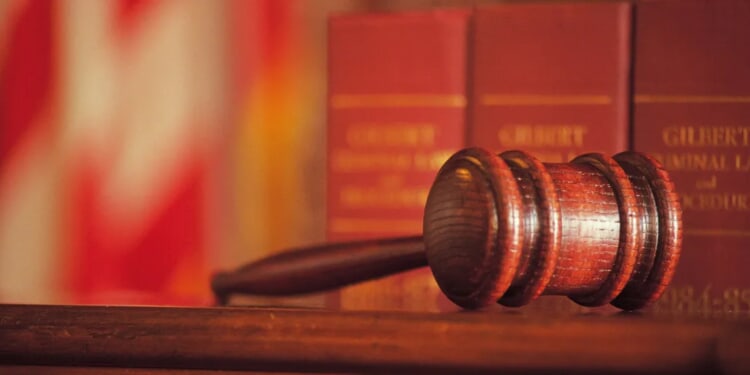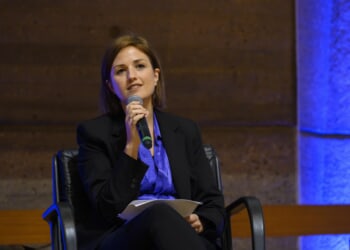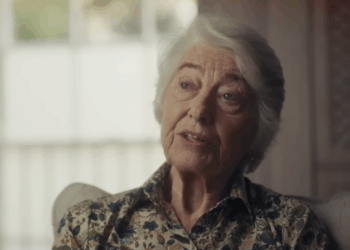The climate lawfare campaign targeting oil and gas companies suffered another big setback in an Oregon court in recent days.
A lawyer for the plaintiff in the case was forced to admit he failed to disclose his funding of a pair of studies that had been introduced as evidence. One defendant says the episode exposes the ethically dubious ties among local governments recruited as plaintiffs, their attorneys, and advocacy groups that have fueled this lawfare drive despite a long string of losses in at least 10 jurisdictions over the past two years.
The case involves a $51 billion lawsuit filed by Multnomah County against an array of energy producers, typical of the campaign’s scattergun approach to mining for deep pockets. One defendant, Chevron, said in a motion that the county’s lead counsel, Roger Worthington, failed to disclose his personal role in producing two studies published in the journal Nature that the county’s experts later cited as independent scientific evidence. One article credited “partial support” from Worthington, while another appeared in draft form on his firm’s website, both used to bolster claims blaming oil companies for a 2021 heatwave. (RELATED: How Leftists Puppet Children For Climate Lawfare Schemes)
The motion says the omissions “harm the integrity of the judicial process,” and argued that such conduct echoes a U.S. Supreme Court case where a lawyer committed a “fraud on the court” by secretly influencing scientific evidence.
“Lead counsel for Plaintiff – Roger Worthington – has failed to affirmatively disclose to the Court that he has supported or otherwise influenced at least two climate change studies, published in Nature in April and May 2025, that Plaintiff and its experts cite and rely upon as though they are independent works of scientific research, when they are not,” the motion reads, adding, “Such misconduct threatens to work what the United States Supreme Court has deemed a fraud on the court.”
The motion details even deeper conflicts. Plaintiff expert Daniel Swain allegedly relied on one of the Nature studies without disclosing Worthington’s financial role, while another expert, Benjamin Franta of Oxford University, associated with the plaintiffs’ law firm Sher Edling, used the same study to oppose dismissal of the case. The defendants said these overlaps confirm a broader pattern of coordination among plaintiff attorneys, their experts, and climate litigation networks.
After reviewing the motion and hearing arguments from both sides’ attorneys, Multnomah County Circuit Judge Benjamin Souede ruled there was insufficient evidence to find Worthington guilty of fraud and rejected Chevron’s request that the two Nature articles be removed from the case. But Judge Souede added that Worthington’s submission of the articles without informing the Court up-front of his own role in supporting their publication was unacceptable, calling it an “almost gobsmacking failure” by the plaintiff, “especially in litigation that is well funded, that is hard fought, that is complicated, that is about important issues.”
Souede went on to add that, although he was not denying the inclusion of the two studies in question as part of the record, they will “carry absolutely no weight” in any conclusions he reaches “if and when” the Court gets to the point of reaching a final decision on the merits in the case. That appeared to be a nod to the fact that judges in similar cases brought in other jurisdictions as part of this long running lawfare effort have been dismissed in favor of the defendants without proceeding to a full trial.
Judge Souede’s rebuke adds to a growing record of skepticism from courts across the country. Similar climate lawsuits have been dismissed in Pennsylvania, South Carolina, New York, California, Maryland, New Jersey, and Puerto Rico. Federal and state court judges have consistently ruled that efforts to impose liability for global emissions amount to unconstitutional attempts to regulate air quality, a federal responsibility under the Clean Air Act.
The Multnomah case raises the very same issues. The controversy over Worthington’s undisclosed influence may or may not ultimately become integral to Judge Soude’s final decision, but it highlights a deeper rot and stretching of ethics that seems to run throughout this climate lawfare machine. For all the billions spent, this campaign continues to unravel under judicial scrutiny.
David Blackmon is an energy writer and consultant based in Texas. He spent 40 years in the oil and gas business, where he specialized in public policy and communications.
The views and opinions expressed in this commentary are those of the author and do not reflect the official position of the Daily Caller News Foundation.
All content created by the Daily Caller News Foundation, an independent and nonpartisan newswire service, is available without charge to any legitimate news publisher that can provide a large audience. All republished articles must include our logo, our reporter’s byline and their DCNF affiliation. For any questions about our guidelines or partnering with us, please contact licensing@dailycallernewsfoundation.org.









![Donald Trump Slams Chicago Leaders After Train Attack Leaves Woman Critically Burned [WATCH]](https://www.right2024.com/wp-content/uploads/2025/11/Trump-Torches-Powell-at-Investment-Forum-Presses-Scott-Bessent-to-350x250.jpg)







